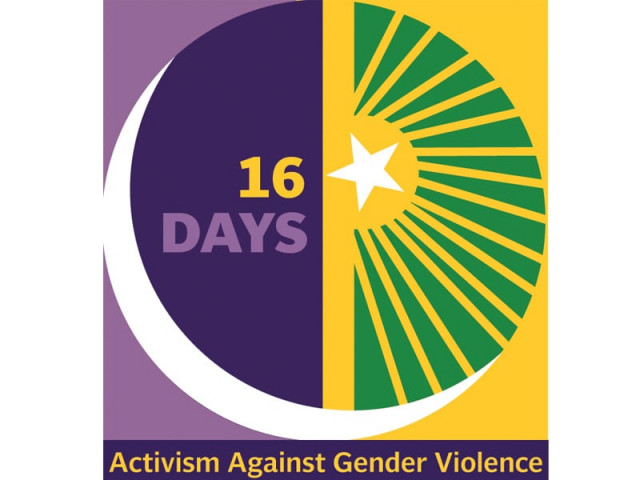Acid attacks: Turning a blind eye to laws to curb violence against women
Survivors’ foundation has been pushing provinces to pass ‘Comprehensive Acid and Burn Crime Bill’ .

Acid-throwing does not only disfigure a face or cause injuries that burn and cause excruciating pain; the victim’s life changes forever. If she survives, she neither lives nor dies. Yet, acid attacks are spreading quantitatively and geographically in Pakistan. In 2009, 43 cases were reported to the Acid Survivors Foundation (ASF), Pakistan’s notification unit.
Fifty-five cases were reported in 2010, 150 in 2011, and 93 this year. Many victims remain silent. The conviction rate for acid violence remains as low as 6%, according to the ASF.
An unsaved face
Consequently, stories like that of Nusrat Parveen surface every day. Nusrat, 30, hails from the village of Shehr Sultan in Muzaffargarh, South Punjab. A little over three years ago, as she prepared to go to her mother’s house, her husband, with the help of his family, subjected Nusrat to a horrific acid attack.
This was an act of revenge. Nusrat’s brother had refused an attempted forced marriage to Nusrat’s sister-in-law and her husband’s family reacted very angrily. Nusrat had never foreseen this.
When her face began to burn in searing pain and her burnt clothes began to peel away. Nusrat fled the room screaming, as she realised what had happened. Her husband’s family told the crowd gathering outside her home that she had burnt herself with acid. For over an hour, Nusrat tried to ease the pain by splashing cold water on the burnt areas. When this did not help, her neighbours took her to Victoria Hospital in Bahawalpur. From there she was referred to Nishtar Hospital, Multan, where she stayed for two months.
Despite their best efforts, the doctors couldn’t heal her excessive burns, leaving her lonely, ostracised and afraid.
She was forced to flee without her three children to Islamabad where she found refuge with the ASF, six months after the incident. Irum, the resident physiologist at ASF said, “When Nusrat arrived at the ASF, she had very frequent episodes of crying and sobbing. She would withdraw from everyone around her and repeatedly ask for her family.”
As part of the rehabilitation process, the ASF provides the victims with vocational training so that they can become self-sufficient. An eager and fast learner, Nusrat has shown great aptitude for sewing.
Calling for laws against acid throwing
To mark the 16 days of activism against Violence against Women and Girls (VAWG), this issue is being brought up once again. Over the last seven months, the ASF has been pushing provincial assemblies to pass the ‘Comprehensive Acid and Burn Crime Bill’ to strengthen pro-women legislation to curb violence against them. Although the comprehensive Acid and Burn Crime Bill is currently being processed in Khyber-Pakhtunkhwa, Punjab and Islamabad Capital Territory, no provincial assembly had tabled this comprehensive acid and burn legislation yet.
In December 2011, the ASF-Pakistan, with support from the UK’s Department for International Development, led a campaign, which resulted in the unanimous passage of the Criminal Law Amendment Act 2011.
Will laws be implemented?
The Criminal Law Amendment Act 2011 made acid and burn violence a crime against the state and imposed a fine of one million Pakistani rupees, along with a punishment of minimum seven years to lifetime imprisonment, for the crime of acid throwing.
The legal milestone was widely welcomed but campaigners say it does not go far enough to eradicate acid violence, arguing that legislation needs to go further to include the trial and rehabilitation process. There is also concern that a lack of monitoring mechanisms will jeopardise effective implementation of the law.
Nusrat and other acid attack victims are currently campaigning with the ASF for the introduction of an Acid and Burn Crime Bill. For this, the civil society, international community and the Government of Pakistan must come together on a single platform.
“I am supporting the cause because I want everyone to be safe. I don’t want anyone to experience what I have gone through.”
Stats and facts
Ninety per cent of the victims of acid attacks have faced a pre-existing form of violence that led to the acid attack.
Between 2007 and 2012, the ASF recorded 786 incidents out of which 62 victims have been provided legal aid thanks in part to UK aid. Since 2008, DFID has provided support to the ASF in Pakistan through the Gender Justice Protection challenge fund.
UK’s support to the ASF has enabled wider lobbying efforts which have helped achieve advocacy and awareness raising, victims’ support and legal aid as well as supporting the first of a three-step legislation (Criminal Law Amendment, comprehensive Acid and Burn Crime Bill, Acid Control Bill).
Published in The Express Tribune, December 3rd, 2012.



1733130350-0/Untitled-design-(76)1733130350-0-208x130.webp)















COMMENTS
Comments are moderated and generally will be posted if they are on-topic and not abusive.
For more information, please see our Comments FAQ